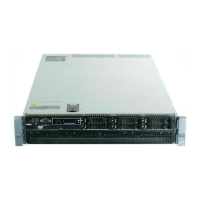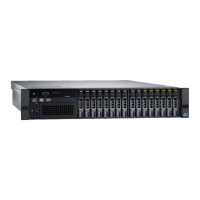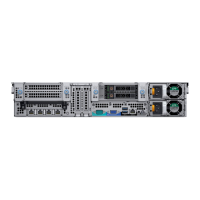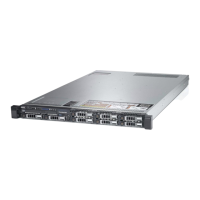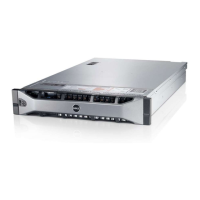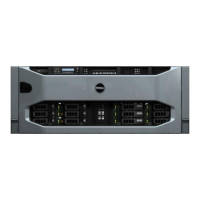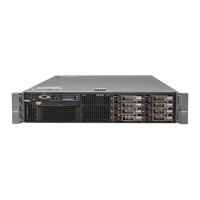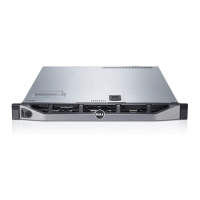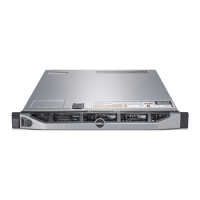Dell
PowerEdge R815 Technical Guide 22
4 Power, Thermal, Acoustic
4.1 Power Supplies
The power supply subsystem supports up to two AC-DC power supplies (1+1 redundant configuration)
connected indirectly to the CPU planar through a Power Distribution Board (PDB). The power supply
only provides +12V and +12Vaux. There are several voltage regulators in the system to supply
different voltage levels needed by different logic devices.
4.2 Power Distribution Board
The Power Distribution Board (PDB) distributes power from the Power Supply Unit (PSU) to the CPU
and IO planars. The Power Management bus enables power supply monitoring and load balancing. The
CPU planar connects directly to the PDB through a 32-pin and 6-blade connector. The IO planar
connects to the PDB through a 12-conductor (2x6) cable. The standby power is routed through the
CPU planar and IO planar via Air-max connector.
4.3
Power Efficiency
One of the main features of PowerEdge servers is enhanced power efficiency. The Dell™ PowerEdge™
R815 achieves higher power efficiency by implementing the following features:
• User-selectable power cap (subsystems will throttle to maintain the specified power cap)
• Improved power budgeting
• Accurate inlet temperature
• PSU/VR efficiency improvements
• Switching regulators instead of linear regulators
• Closed loop thermal throttling
• Increased rear venting/3D venting
• PWM fans with an increased number of fan zones and configuration-dependent fan speeds
• Use of DDR3 memory (lower voltage compared to DDR2, UDIMM support)
• CPU VR dynamic phase shedding
• Memory VR static phase shedding
• Random time interval for system start (Allows an entire rack to power on without exceeding
the available power)
• BIOS Power/Performance options page
• Active Power Controller (BIOS-based CPU P-state manager)
• Ability to power down or throttle memory
• Ability to disable a CPU core
• Ability to turn off embedded NICs or PCI-e lanes when not being used
• Option to run PCI-e at Gen1 speeds instead of Gen2
